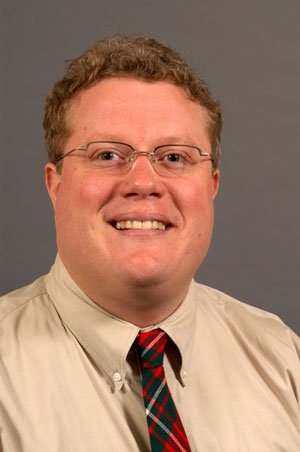Faculty Profile
Chuck Zwemer
Professor of Biology (1995)Contact Information
Rector Science - James Hall
717-245-1293
Bio
He teaches courses in physiology, microanatomy, and vertebrate biology. His research addresses issues of cardiovascular, respiratory, and renal function in normal and diseased states.
Education
- B.A., Hope College, 1987
- Ph.D., Indiana University Medical Sciences Program, 1993
- Post-Doctoral Fellowship, University of Michigan Medical School, 1995
Awards
- Ganoe Award for Inspirational Teaching, 1999-2000
2025-2026 Academic Year
Fall 2025
BIOL 334 Comp Vertebrate Anatomy w/lab
An integrated lecture and laboratory course exploring the functional morphology and evolution of vertebrates. Students will apply foundational content from lecture and intensive techniques of manual tissue dissection in the laboratory to fully evaluate the structure & function integrative design of selected, preserved specimens. Six hours classroom a week. Prerequisites: One 200-level BIOL course. For Neuroscience majors, prerequisite is NRSC 200.
BIOL 412 Physio of Prehosp Emerg Care
Through detailed study of the primary biological literature, students acquire an understanding of the methodology and philosophy of scientific research. Includes study of the formulation of hypotheses, the design of experiments or observations to test these hypotheses, and the interpretation of results. This course will normally require a major research-based presentation and/or paper and may also involve the conduct of research by students. This course satisfies the requirement for a research experience for the biology major.
Prerequisites: one 200-level Biology course and one upper-level Biology course.
Spring 2026
HPPG 141 EMT Certification Training
Permission of Instructor Required.
BIOL 333 Human Physiology w/Lab
This course examines physiological mechanisms in the human body with an emphasis on the chemical and physical principles that govern the normal functions of organs and organ systems to maintain homeostasis. Topics include the nervous, muscular, cardiovascular, respiratory, endocrine, digestive, renal, reproductive, and immune systems. The laboratory reinforces lecture material through experiments that involve physiological measurements and data analysis.Six hours classroom a week. Prerequisites: One 200-level BIOL course. For Neuroscience majors, prerequisite is NRSC 200.
